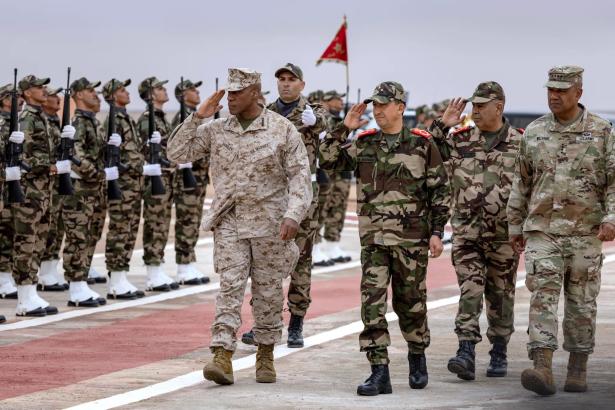Reprinted from The Intercept, June 8, 2025
President George W. Bush created a new command to oversee all military operations in Africa 18 years ago. U.S. Africa Command was meant to help “bring peace and security to the people of Africa.”
The Trump administration now has AFRICOM on the chopping block as part of its sweeping reorganization of the military. According to the general leading the command, its mission is far from accomplished.
Gen. Michael Langley, the head of AFRICOM, offered a grim assessment of security on the African continent during a recent press conference. The West African Sahel, he said last Friday, was now the “epicenter of terrorism” and the gravest terrorist threats to the U.S. homeland were “unfortunately right here on the African continent.”
Click HERE to read the remainder of this article at The Intercept.
Nick Turse is a national security fellow for The Intercept, reporting on national security and foreign policy. He is the author, most recently, of “Next Time They’ll Come to Count the Dead: War and Survival in South Sudan” and the New York Times bestseller “Kill Anything That Moves: The Real American War in Vietnam.” He has written for the New York Times, Los Angeles Times, Rolling Stone, and Harpers, among other publications. He has received a Ridenhour Prize for investigative reporting, a Military Reporters & Editors Association Award for Best Overseas Coverage, and a Deadline Club Award for Reporting by Independent Digital Media. Turse is also a fellow at the Type Media Center.
At The Intercept, we investigate powerful individuals and institutions to expose corruption and injustice. We see journalism as an instrument of civic action. We’re here to change the world, not just describe it.
The Intercept aspires to drive meaningful change by empowering the public with information to demand a better world from institutions and leaders. We believe rigorous and courageous journalism plays a vital role in protecting human rights, safeguarding freedoms, checking the influence of money and power, and moving society toward a just future.
Since our founding in 2014, our groundbreaking reporting has achieved immense impact, including spurring exonerations, reforming laws, enacting new legislation, and exposing sweeping national security programs that undermine civil liberties.


Spread the word